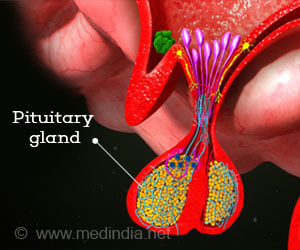Pituitary Tumors
How do pituitary tumors affect you and what are the risks, symptoms and causes of pituitary tumors? Read on how pituitary tumors affect the quality of your life and just how effective is treatment.
Brand Names and Generic Names of Drugs for Treatment of Pituitary Tumors
Arginine
Arginine, also known as L-arginine, is an amino acid that is a building block of proteins.
Trade Names :
Aminofit
More ...
Bromocriptine
Bromocriptine is a dopamine agonist, prescribed for Parkinson’s disease either alone or with other medications.
Trade Names :
Ovucript 2.5mg | Briptin | Bromotin | Bromorex | Criptal | Bromogen | Ovucript (2.5 mg) | B -Crip | Semi Brom | Sicriptin
More ...
Cabergoline
Cabergoline is a potent dopamine receptor agonist, prescribed for hyperprolactinemic disorders (high level of prolactin hormone), Parkinson’s disease either alone or with other medications.
Trade Names :
Camforte (1 mg) | Cabgolin | Caberlin | Cabre | CB -Lin | Cabgolin (0.5 mg) | CB -Lin (1 mg) | Camforte | Cablyn (0.25 mg) | Camforte (0.25 mg)
More ...
Advertisement
Ketoconazole
Ketoconazole is an anti-fungal agent, prescribed for jock itch, athlete's foot and other infections.
Trade Names :
Danket | Ketovate | Funginoc | Phytoral | Nizral | Nizral | Danruf | Ketodan | Nodan | Funginoc
More ...
Pegvisomant
Pegvisomant is a growth hormone receptor antagonist, prescribed for acromegaly in people who have not responded to other therapies.









